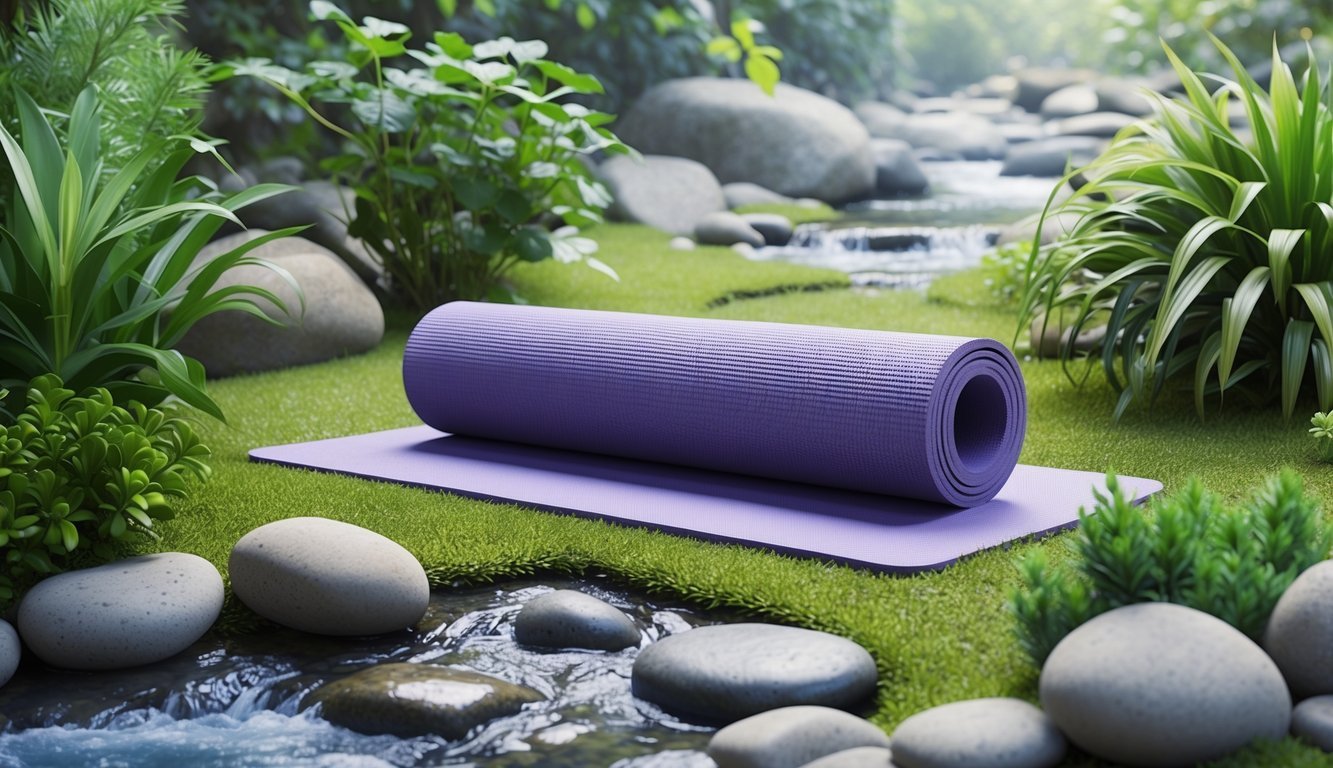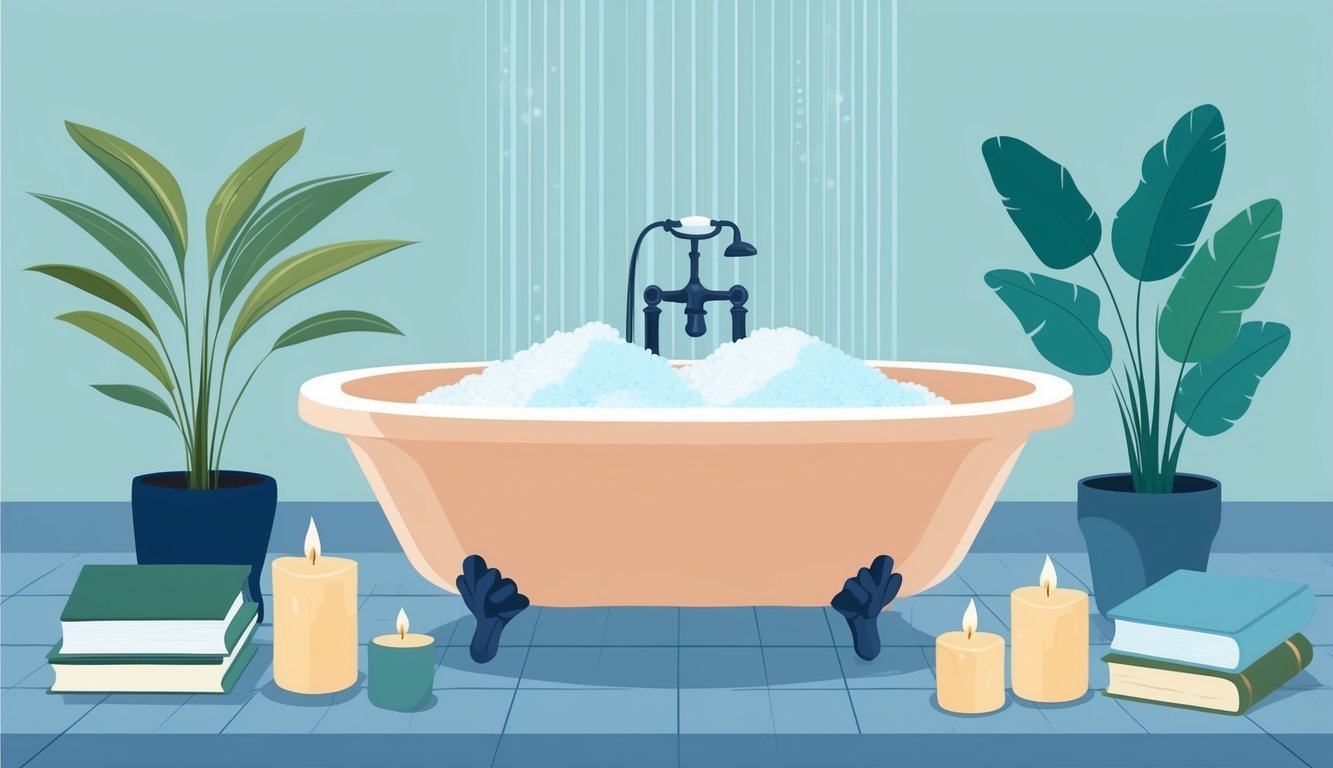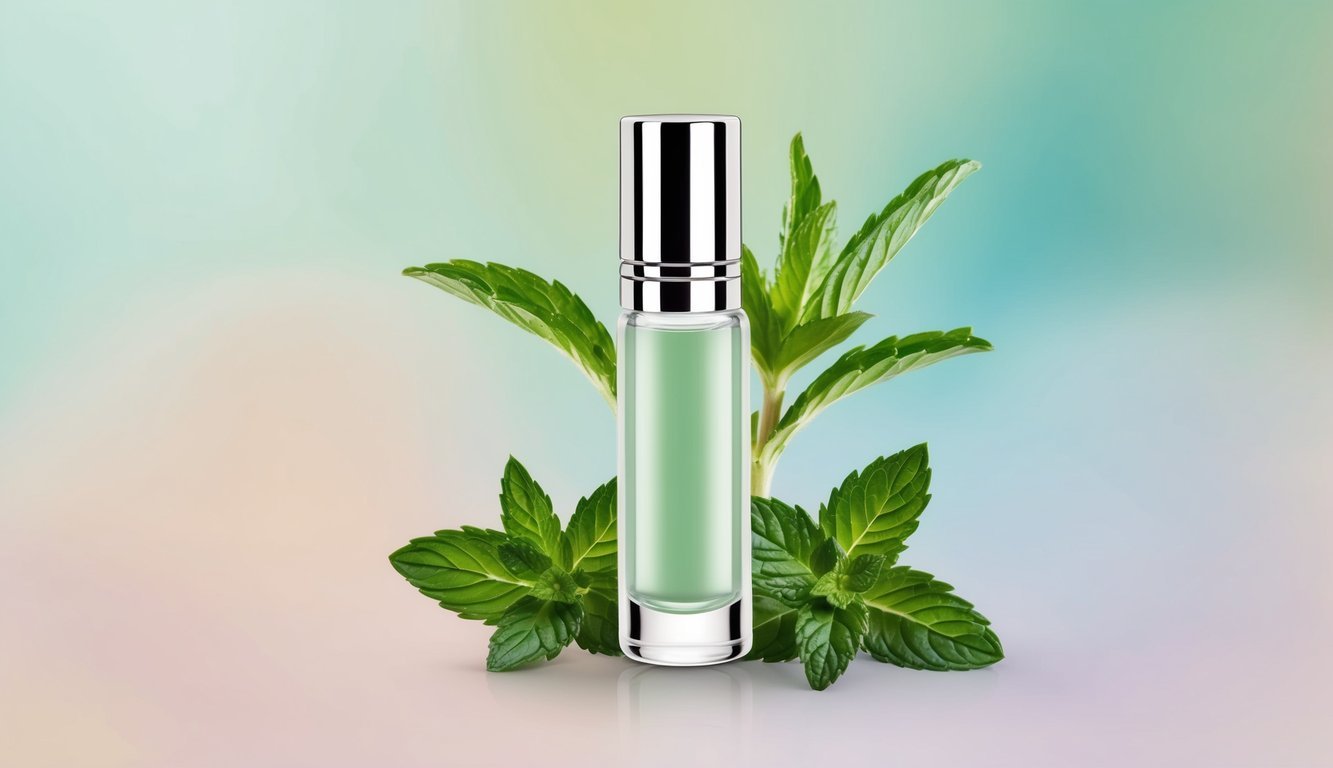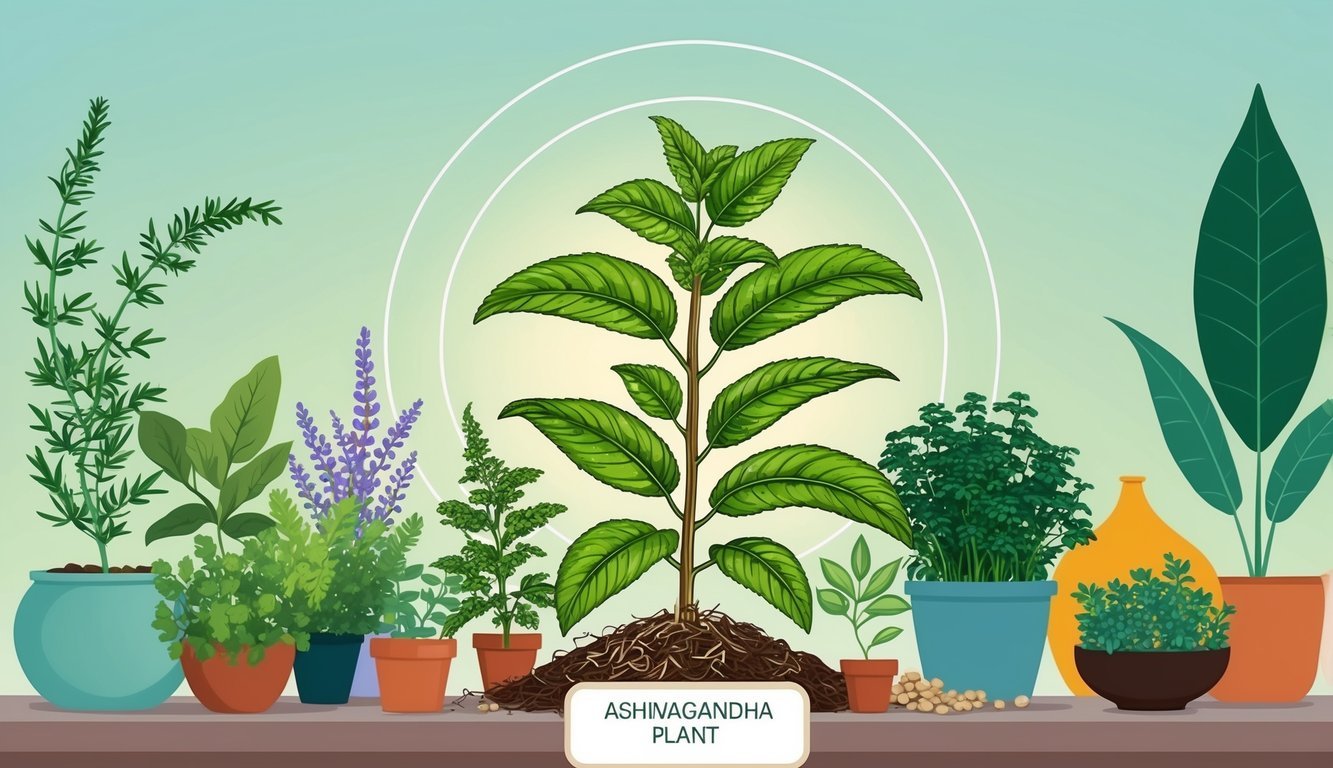Stress and anxiety are common challenges that many of us face in our daily lives.
Finding effective ways to manage these feelings can significantly improve our overall well-being.
Exploring natural remedies can provide us with accessible and holistic options to tackle these issues.

In my journey to find relief from stress, I’ve discovered various simple yet impactful strategies that can help soothe the mind and body.
From herbal teas to mindfulness practices, many natural techniques are available to support us during tough times.
It’s all about discovering what resonates with me personally and incorporating those practices into my routine.
Chamomile Tea
Chamomile tea is one of my go-to remedies for stress and anxiety.
Its calming properties make it a favorite among those looking for a natural way to unwind.
I love the slightly sweet, apple-like flavor, which adds a pleasant touch to my relaxation routine.
Studies suggest it may be effective for generalized anxiety disorders, making it a solid choice when I’m feeling overwhelmed.
To prepare it, I steep 1-2 teaspoons of dried chamomile flowers in hot water for about 5-10 minutes.
Enjoying a cup in the evening helps me relax before bedtime.
Chamomile not only soothes the mind but also brings some physical benefits.
It has anti-inflammatory and calming effects, which can aid digestion.
Drinking chamomile tea regularly, especially after meals, can be a simple way to support both my mental and physical well-being.
Plus, it’s a comforting ritual that I look forward to at the end of the day.
Lavender Essential Oil
I love using lavender essential oil for its calming properties.
The scent can be soothing, especially during stressful moments.
When I use it in a diffuser, I often notice that it helps create a serene atmosphere.
Sometimes, I add a few drops to my bathwater for a relaxing soak.
Topically, I find that applying lavender oil through massage allows it to absorb quickly into my skin.
This gives me a gentle sense of relaxation, easing my stress.
I appreciate how lavender can elevate my mood and reduce feelings of anxiety.
It’s also a nice option for supporting better sleep.
Incorporating lavender oil into my daily routine feels like a small but effective way to manage stress.
Whether it’s in the morning with a cup of lavender tea or in the evening, it really helps me unwind.
3) Valerian Root Supplement
I’ve come across valerian root as a popular natural remedy for anxiety.
It’s been used since ancient times for its calming effects.
Yet, the evidence is mixed; while some studies show it can help reduce anxiety, others see no real benefit.
I find it interesting that valerian root impacts brain chemistry.
It contains compounds like valerenic acid, which might play a role in increasing serotonin levels.
This could help with anxiety management.
When it comes to dosage, recommendations vary.
Some research suggests taking between 400 to 1,410 mg daily for a few weeks.
It’s best to watch how my body responds to it.
What also stands out is that valerian root appears to be safe for short-term use.
I’ll keep in mind that there isn’t much data on long-term use, so it’s wise to take it only for a limited time unless a healthcare professional advises otherwise.
As with any supplement, I think it’s essential to consult a doctor before starting.
Deep Breathing Exercises

I’ve found that deep breathing exercises can be a game changer for stress and anxiety.
These simple techniques help calm my mind and relax my body.
One effective method is the 4-7-8 technique.
I inhale through my nose for four counts, hold for seven seconds, and then exhale through my mouth for eight counts.
This helps to regulate my breath and slows down my heart rate.
Another technique I like is diaphragmatic breathing.
I place one hand on my chest and the other on my belly.
As I breathe in deeply through my nose, I focus on making my belly rise while keeping my chest still.
This promotes fuller oxygen exchange and can be very soothing.
Pursed-lip breathing is another favorite of mine.
I breathe in through my nose and then exhale slowly through pursed lips, like I’m blowing out a candle.
This helps make my breaths slower and more intentional, which feels really nice when I’m feeling anxious.
Incorporating these deep breathing exercises into my daily routine has really helped me manage stress better.
They’re easy to do anywhere and don’t take much time at all.
5) Meditation Apps like Headspace

I’ve found meditation apps to be a game changer for managing stress and anxiety.
Apps like Headspace offer guided sessions that can really help me focus and unwind.
Headspace provides a user-friendly interface, making it easy for me to choose from various meditation topics.
Whether I’m dealing with stress or just want to improve my focus, there’s something for everyone.
The app offers features like sleep aids and mindfulness exercises.
These have become a part of my nightly routine, helping me drift off more easily.
Another great option is Calm.
While it’s a bit pricier, I appreciate the extensive library of content, including sounds, meditations, and courses.
Apps like Smiling Mind are also worth mentioning, especially for younger audiences.
They provide a solid introduction to mindfulness without any cost.
I appreciate that these apps help me create a consistent meditation practice.
They make it easier to find time for myself, even on busy days.
6) Yoga Sessions

I find that participating in yoga sessions can significantly help with stress and anxiety.
The combination of physical movement, controlled breathing, and meditation creates a calming environment that I appreciate.
Certain poses focus on relaxation and grounding.
For instance, forward bends and gentle twists help me release tension in my body.
I love starting with Child’s Pose to find my center before moving into deeper stretches.
Breathing is a big part of yoga.
I always focus on deep, slow breaths, which helps me center my mind.
The rhythm of inhaling and exhaling can shift my mood and relieve built-up stress.
I also enjoy practicing yoga in a group setting.
Being around others who share the same goals encourages me and enhances the experience.
Whether online or in-person, the supportive atmosphere can be uplifting.
Overall, I’ve noticed that even just a few sessions can lead to a sense of peace.
It’s a natural remedy that fits easily into my routine and makes a noticeable difference in how I feel.
7) Bath with Epsom Salt

I’ve found that taking a bath with Epsom salt can be incredibly relaxing.
Epsom salt contains magnesium sulfate, which can help relieve muscle tension and soreness.
When I soak in a warm tub, the magnesium absorbs through my skin and promotes a sense of calm.
I usually add about 2 cups of Epsom salt to the water for the best results.
Sometimes, I mix in a few drops of lavender essential oil.
It not only smells great but also enhances the relaxation I feel during my bath.
The warm water combined with Epsom salt helps increase circulation, which can aid in detoxifying my body.
Plus, it’s a perfect way to unwind after a long day.
I recommend filling your tub with hot water first so the salt dissolves quickly.
Then, I just let myself relax and enjoy the soothing experience.
Whether you’re battling stress or just need some “me time,” an Epsom salt bath can be a simple and effective remedy.
8) Peppermint Aromatherapy Roller

I love using a peppermint aromatherapy roller for a quick pick-me-up during stressful days.
The scent of peppermint is invigorating and helps to clear my mind.
It’s refreshing and can boost my mood almost instantly.
To make my own roller, I mix a few drops of peppermint essential oil with a carrier oil, like jojoba or coconut oil.
I typically use about 10 drops of peppermint in a 10 ml roller bottle filled with the carrier oil.
When I’m feeling anxious or overwhelmed, I apply it to my wrists and behind my ears.
The aroma becomes a part of my breathing, calming my nerves and enhancing focus.
Peppermint has properties that stimulate the nervous system and can help relieve tension.
I find that it’s particularly effective when paired with deep breathing exercises.
Just taking a moment to breathe in the scent can really help ground me.
This simple roller is a staple in my daily routine and can easily be tossed in my bag.
Whenever stress creeps in, I have a soothing remedy ready to go.
9) Ashwagandha Capsules

I’ve often heard about ashwagandha as a natural stress reliever.
These capsules are derived from the ashwagandha plant, commonly used in Ayurvedic medicine.
Many people find that taking ashwagandha can help with stress and anxiety.
Studies suggest it may calm the mind and support overall well-being.
I appreciate that it’s considered well tolerated for short-term use.
When choosing ashwagandha capsules, I always check the label.
Not all products are the same; they can vary in quality and concentration.
Some possible side effects can include effects on the liver or thyroid, so it’s wise to be cautious.
If I have existing health concerns or conditions like prostate cancer, consulting a healthcare professional is a smart move.
Incorporating ashwagandha into my routine has been beneficial.
It won’t completely eliminate stress, but it’s a helpful addition to a balanced approach to wellness.
10) Progressive Muscle Relaxation

I often turn to Progressive Muscle Relaxation (PMR) when I need to ease stress and anxiety.
This technique, developed by Edmund Jacobson in the 1920s, helps me focus on each muscle group.
The practice involves tensing and then relaxing my muscles.
I start from my toes and work my way up to my head, which encourages my body to let go of tension.
Research shows that PMR can effectively reduce anxiety and depression levels.
Just a few minutes of this practice can create a sense of calm.
Using PMR regularly helps me manage my anxiety response, and it makes a difference in how I feel throughout the day.
There are plenty of apps and resources available that guide me through PMR, making it easy to incorporate into my routine.
I appreciate that I can practice it anywhere, whether I’m at home or on the go.
Understanding Stress and Anxiety
Stress and anxiety are common experiences that I think we all face at some point.
They’re often intertwined, yet each has distinct characteristics and causes.
Knowing the differences can help in finding effective ways to manage them.
What Causes Stress?
Stress can stem from various sources, and I’ve found that it often relates to external pressures or internal expectations.
Common triggers include:
- Work-related issues: Deadlines, workload, or conflicts with coworkers can heighten stress levels.
- Life changes: Major life events, such as moving, marriage, or loss of a loved one, can provoke significant stress.
- Financial problems: Worries about money or job stability can be overwhelming.
- Personal relationships: Conflicts or demands from family and friends can add to the stress.
These triggers can activate my body’s stress response, leading to physical and emotional symptoms if not managed properly.
How Anxiety Affects the Body
When I experience anxiety, it can manifest in various physical ways.
Some common effects include:
- Heart rate increase: My heart might pound or race when I’m anxious.
- Muscle tension: Stress can lead to tightness in my shoulders or neck.
- Digestive issues: Anxiety often disrupts my stomach, causing discomfort or nausea.
- Sleep disturbances: It can be hard to fall asleep or stay asleep when anxious.
These symptoms occur because anxiety activates the body’s “fight or flight” response, releasing stress hormones like cortisol.
Recognizing these signs helps me to address anxiety proactively.
Lifestyle Changes to Manage Stress
Implementing lifestyle changes can significantly impact my stress levels.
By focusing on regular exercise and proper nutrition, I can create a foundation for better mental health and resilience against anxiety.
Importance of Regular Exercise
I’ve found that regular physical activity is one of the best ways to alleviate stress.
Engaging in exercise releases endorphins, chemicals in my brain that act as natural mood boosters.
Even a brisk 30-minute walk can make a noticeable difference in how I feel.
Choosing activities I enjoy is vital.
Whether it’s dancing, cycling, or yoga, finding something that excites me keeps me motivated.
Additionally, exercising in nature can enhance relaxation, providing a calming effect.
It’s not just about the workout; the routine contributes to discipline and a sense of accomplishment.
The Role of Nutrition
What I eat can profoundly affect my mood and stress levels.
I prioritize a balanced diet filled with fruits, vegetables, whole grains, and lean proteins.
These foods provide essential nutrients that support brain health.
Staying hydrated is crucial too.
Drinking enough water helps me stay focused and energetic.
I like to include foods rich in omega-3 fatty acids, such as salmon and walnuts.
These may help support mood regulation.
Limiting sugar and caffeine also matters to me.
These can lead to spikes in energy followed by crashes, which may worsen feelings of anxiety.
Meal planning helps me stay on track and make healthier choices consistently.

